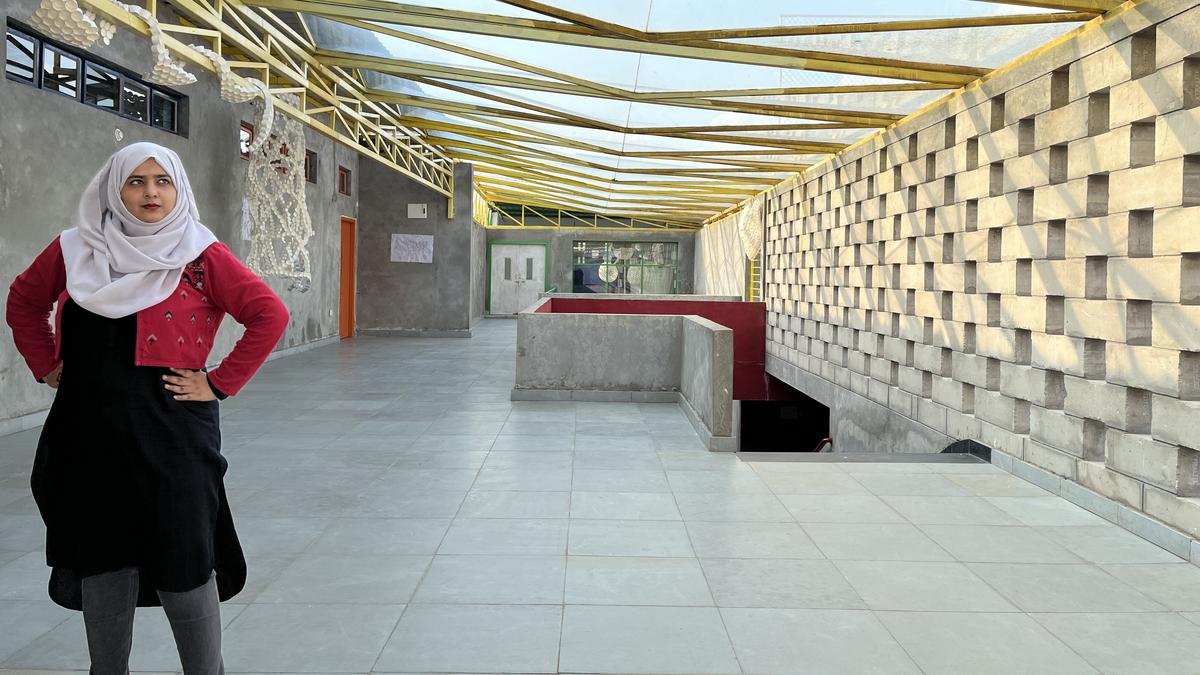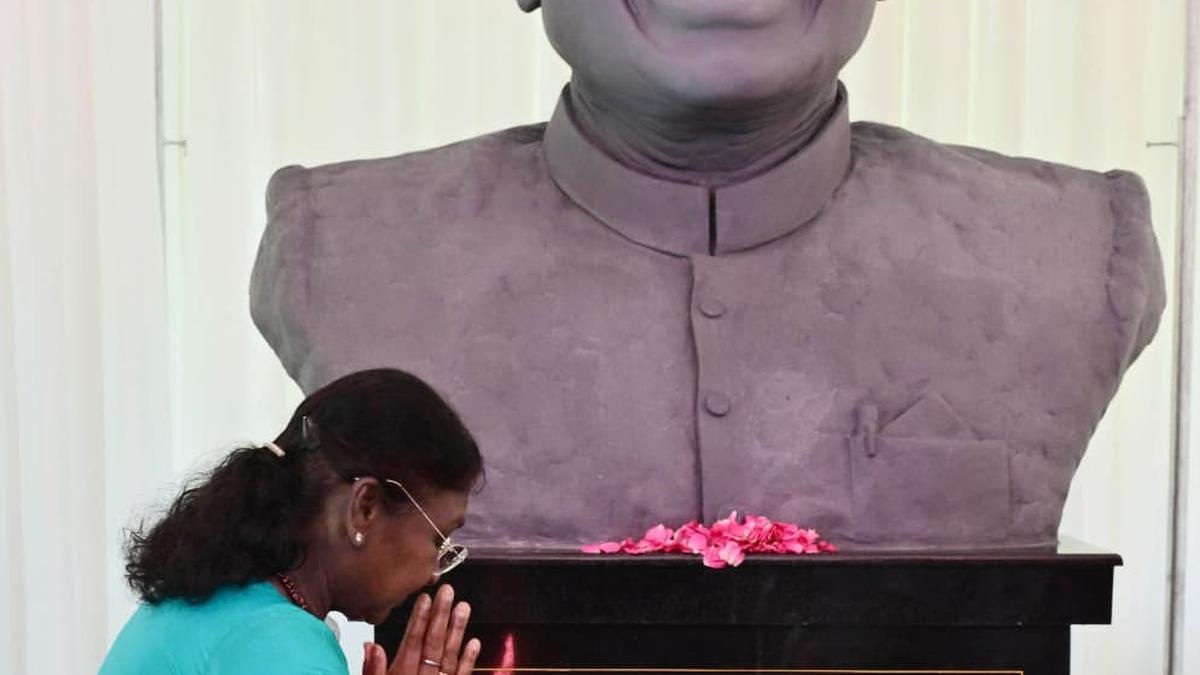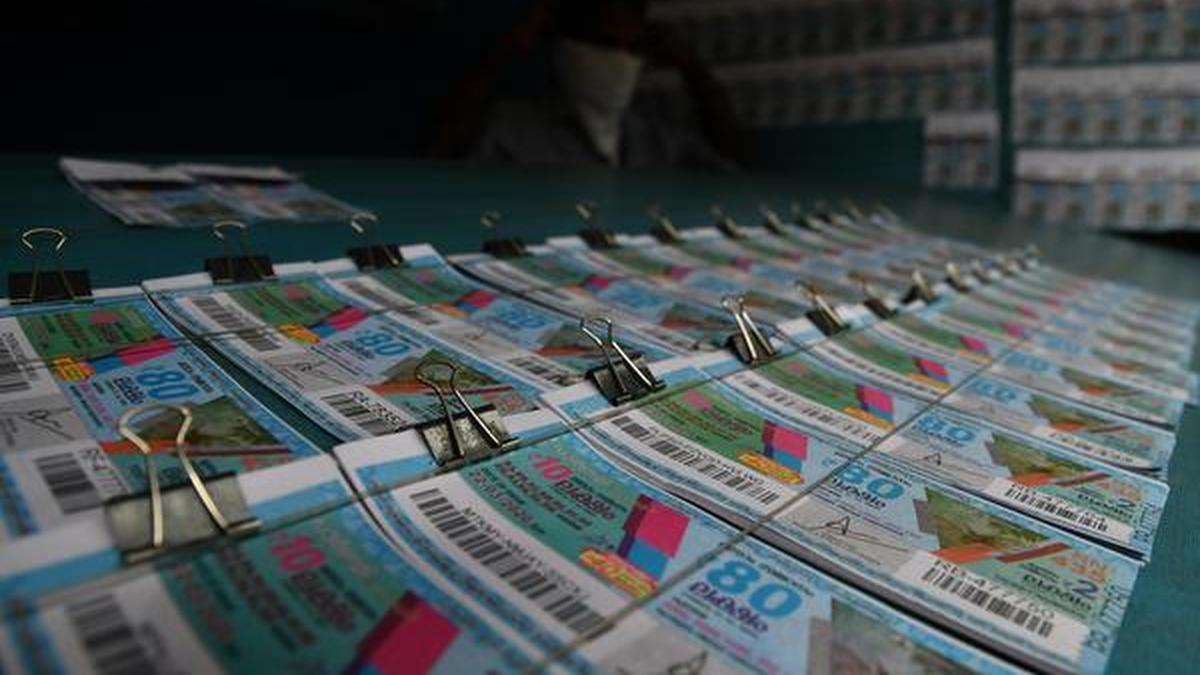Takbir Fatima
| Photo Credit: Akhila Rao and Ujjwal Sannala.
It is a proud moment for Hyderabad-based architect Takbir Fatima to be one of only two Indians, the other being Anupama Kundoo, to be featured in 100 Women: Architects in Practice.
Edited by Tom Ravenscroft (Dezeen), Harriet Harriss (Pratt University), Naomi House (Middlesex University) and Monika Parrinder (University of the Arts London), the book published by the Royal Institute of British Architects (RIBA) aims to shine a spotlight on women architects from across the globe. “There is a dearth of voices of women in architecture,” says Takbir, founder of DesignAware, an experimental architectural firm in Hyderabad.
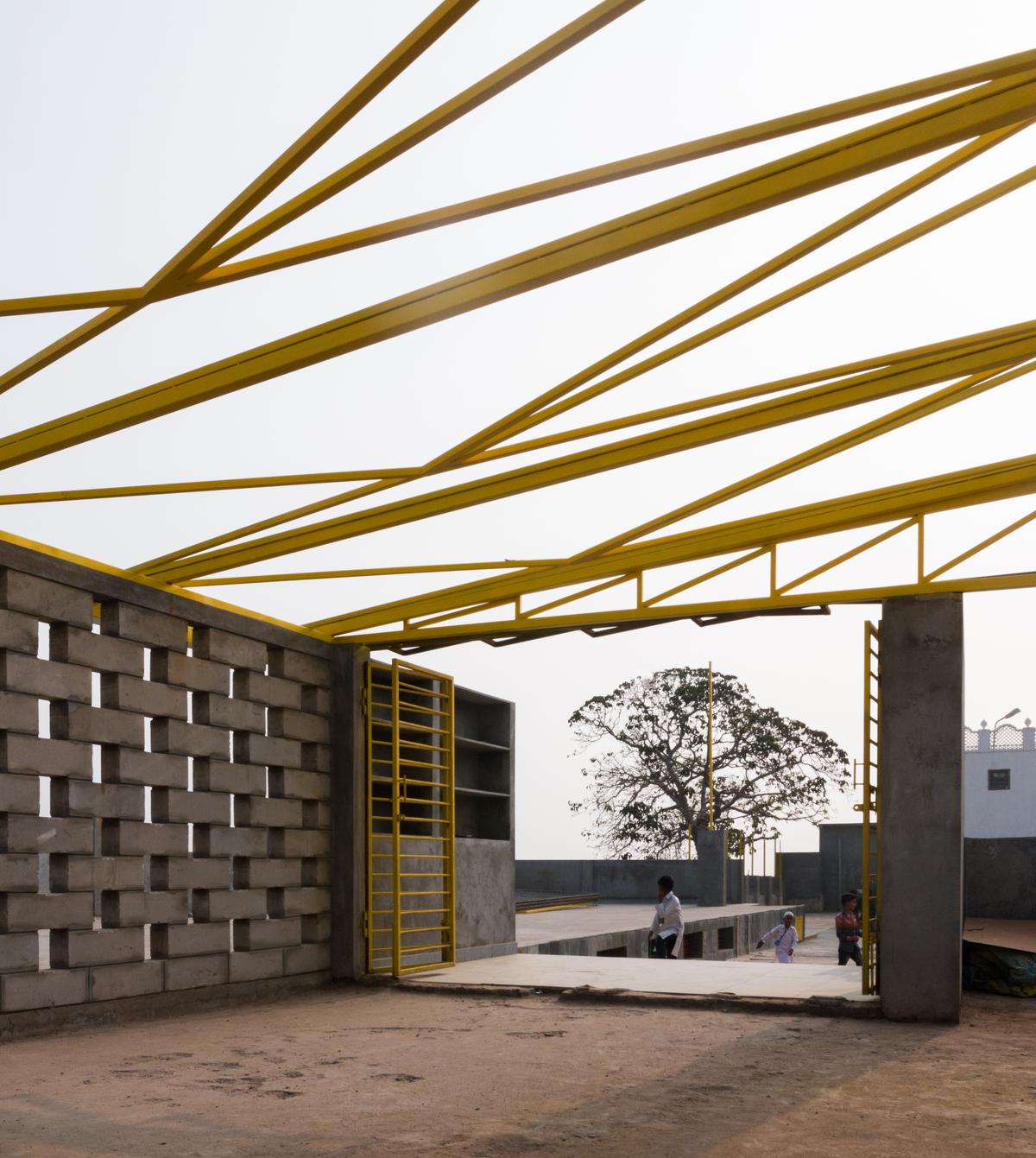
A view of the Hilltop School designed by Takbir Fatima
| Photo Credit:
Akhila Rao and Ujjwal Sannala.
While bringing out diverse voices, the book features a balanced mix of established and upcoming architects. “They (publishers) wanted to decolonize the narrative around architecture because it’s always talked from a West-centric point of view. The search was for women from all over the world, and also to turn the spotlight on under-represented places ,” she recollects. Divided into continents and countries, the book gets each architect to talk about a major project they undertook, approach to architecture and plans, all in a few pages.
Having studied about Anupama Kundoo in college, to be featured alongside her is an honour, says Takbir. “Well-known and respected Yasmeen Lari, the first architect of Pakistan, is also featured in the book; it has a blend of professionals, veteran and upcoming architects, with an idiosyncratic design approach.”
Preserving the terrain
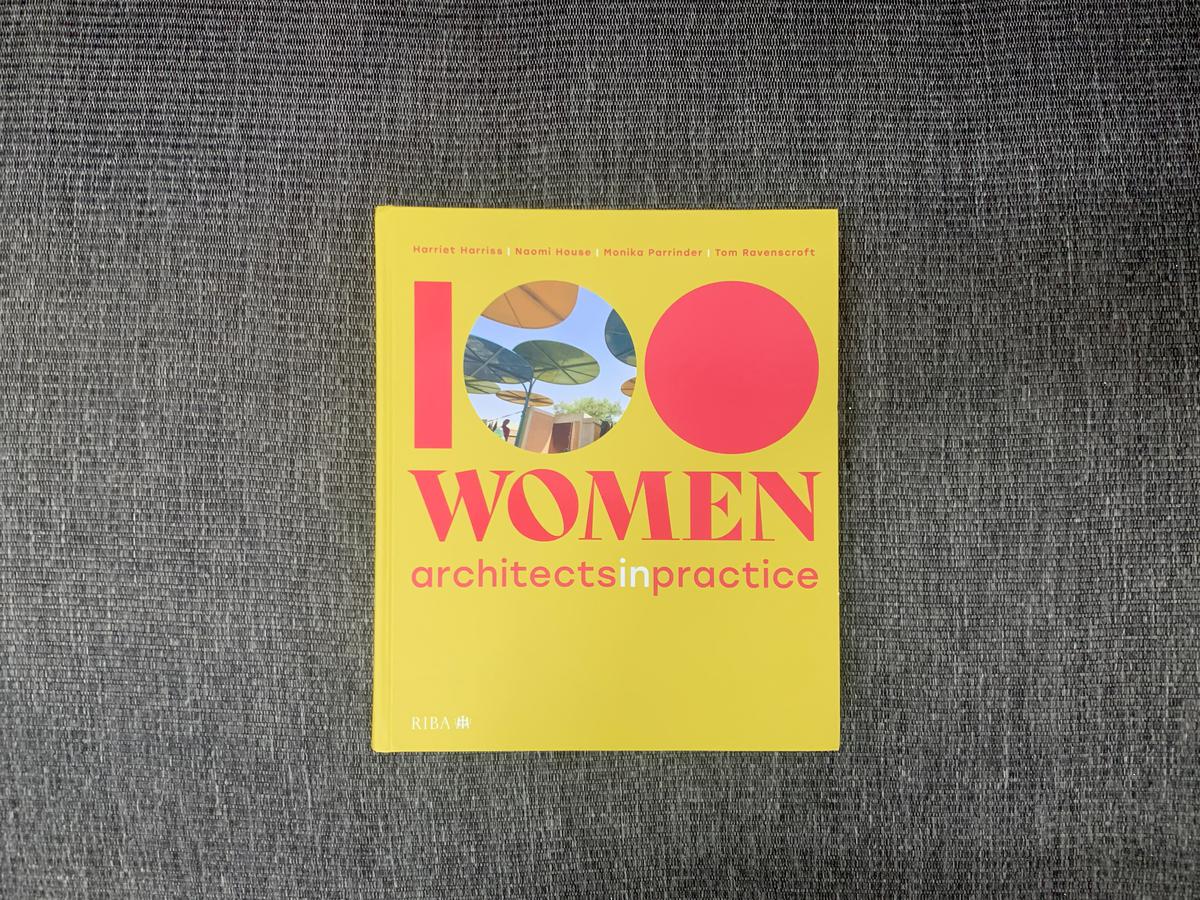
Book cover
| Photo Credit:
special arrangement
While Takbir first received an email about her selection from the publishers in 2020, publishing the book took four years. A well-known project of this alumnus of Jawaharlal Nehru Architecture & Fine Arts University (JNAFAU), Hyderabad, that finds a place in this book is the Hilltop School/ Bright Horizon Academy, a charity school for children from underprivileged sections within the Golconda Fort. A low budget and difficult (hilly and rocky) terrain were some of her challenges in executing this project. Built incrementally from 2016 to 2021 depending on the funds received, the school is an IGBC (CII – Indian Green Building Council) certified Silver Green Building.
It was designed with Heritage Zone considerations and preservation of the existing terrain of indigenous rock formations and trees, low-cost and low maintenance “We did not break any rocks and kept almost all the existing trees ,” she recalls. When a courtyard had to be demolished, features of its open space were integrated to ensure that the school is naturally ventilated.
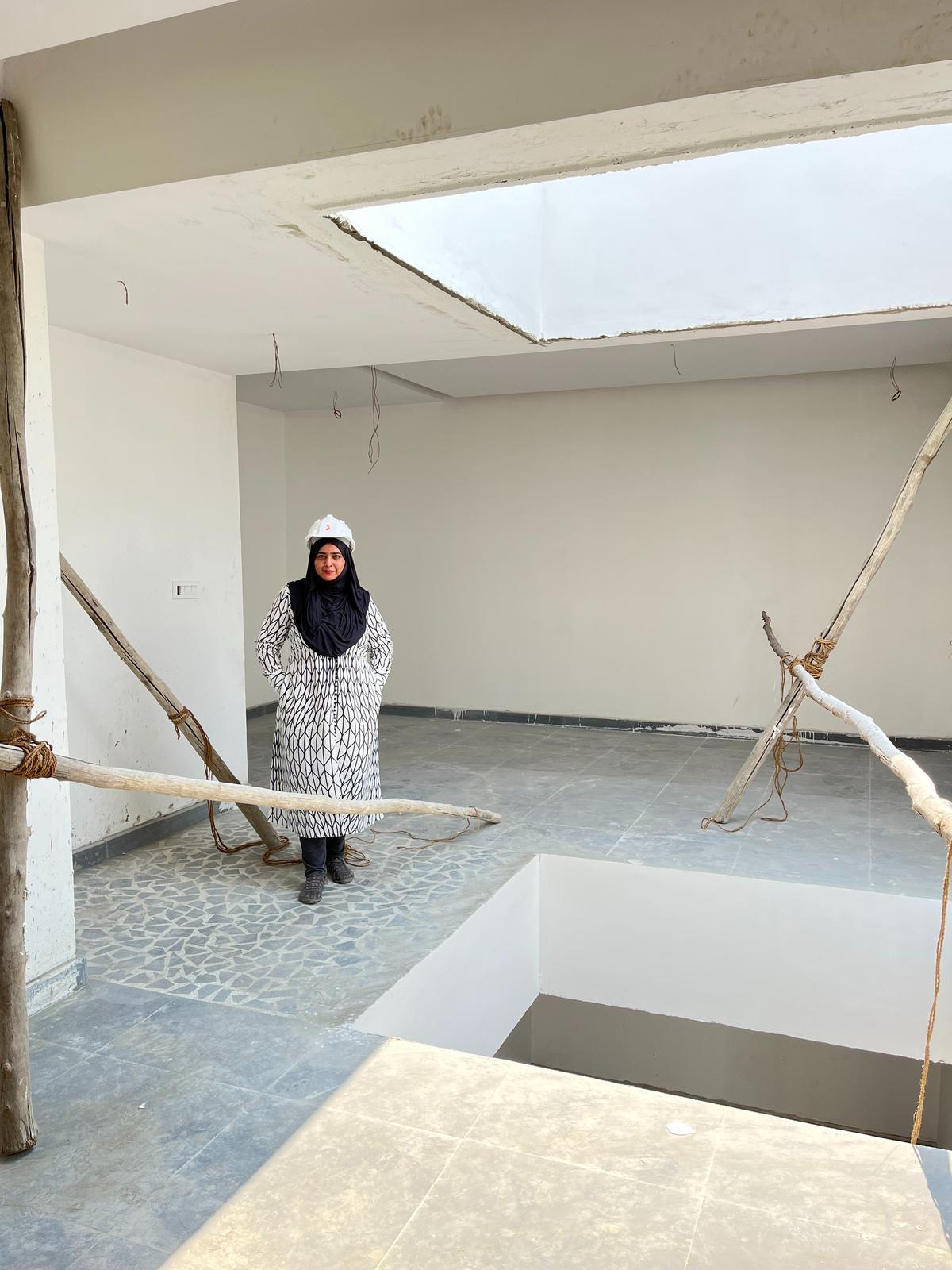
Takbir Fatima at the Hilltop School
| Photo Credit:
Akhila Rao and Ujjwal Sannala.
Takbir thinks this project might have been selected as it doubles up as a community centre, a training centre for teachers and parents, serving midday meals to children during Ramadan and a vaccination clinic during the summer vacation. “It is more a magnet for the community than just a school,” she adds. Interestingly the school was previously featured in Rethink Design Guide published by RIBA, and that is how her work caught the team’s eye and they later approached her for the book..
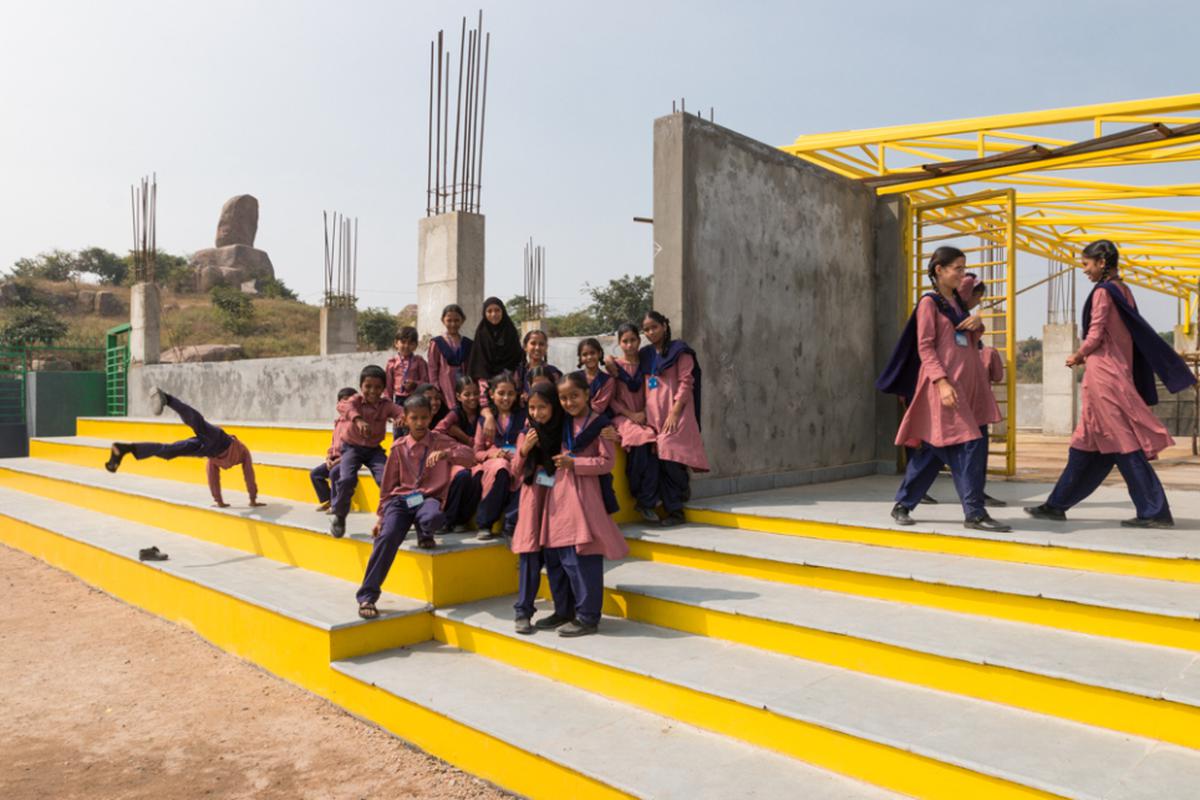
Students at the Hilltop School
| Photo Credit:
Akhila Rao and Ujjwal Sannala.
Now her work is also a part of the ongoing India Art, Architecture & Design Biennale, displayed at the ‘Samatva: Shaping the Built’ exhibition (until March 31) with works of 80 women architects practising in India. She is the only architect representing Hyderabad at the Biennale.
Looking forward to participating in the 19th International Architecture Exhibition in 2025, Takbir says, “We aim to make design more accessible even to people who cannot afford and build communities through good design.”


